
Late season wildfires that broke out over the weekend in Portugal have killed at least 35 people, including a one-month-old baby, making 2017 the deadliest year on record for forest blazes in the country.
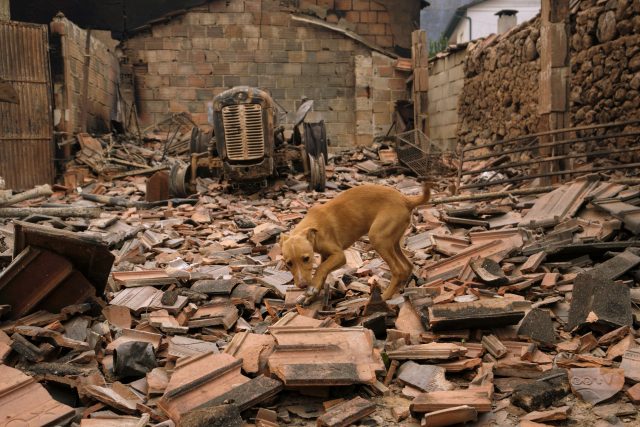
In neighbouring Spain, more wildfires killed at least four people and prompted the evacuation of thousands in the north-west region of Galicia, as the remnants of winds from Hurricane Ophelia fanned the flames along Iberia’s Atlantic coast.
The fires returned to Portugal four months after a summer blaze claimed 64 lives in one night. The year’s current total of 99 deaths is far higher than the previous annual record of 25, in 1966.
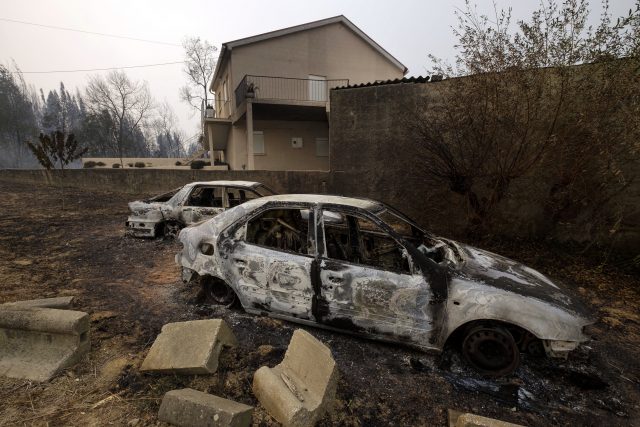
The Civil Protection Agency said the baby’s body was found near Tabua, 120 miles north of Lisbon. The parents’ bodies were reportedly found nearby.
Agency spokeswoman Patricia Gaspar said the death toll could rise: “We are still searching burnt areas to see if there are any more victims.”
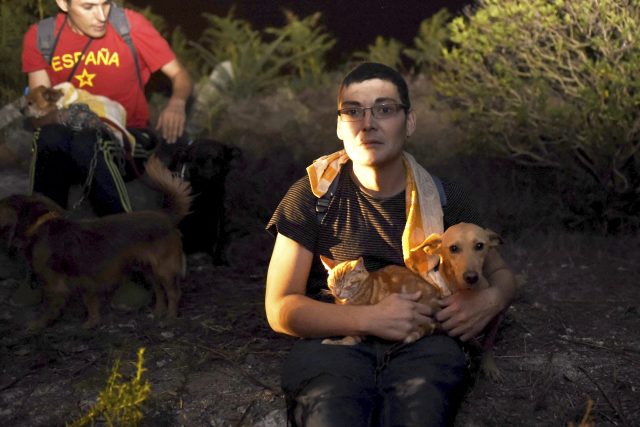
She said 56 people were injured, 16 seriously, and nine were reported missing in the blazes that broke out over the weekend.
More than 5,300 firefighters with over 1,600 vehicles were still battling the fires through dense pine and eucalyptus forests on Monday.
Deep sympathy & #solidarity with #Portugal & #Spain for the new #forestfires. The EU's emergency response and coordination centre #ERCC is monitoring closely and is in constant contact. #EUCivPro ready to help
— Christos Stylianides (@StylianidesEU) October 16, 2017
Our deepest condolences go to those affected by the devastating forest fires in Portugal and Spain. We are ready to help. #EUCivPro pic.twitter.com/rITSiiYCH7
— European Commission (@EU_Commission) October 16, 2017
Portugal endures widespread forest blazes every summer. Most fires are set deliberately, officials say, and spread quickly due to poor forest management which leaves debris that fuels fires.
Emergency services recorded 523 wildfires on Sunday, the highest number in a single day in more than a decade. “You don’t see that in any other country in the world,” said Ms Gaspar.
A prolonged drought has made the situation worse this year.
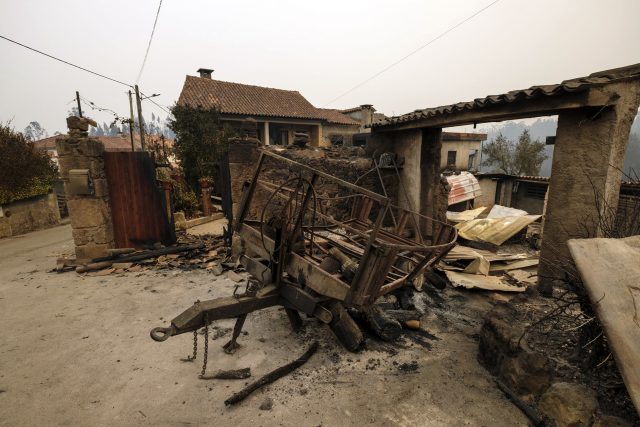
“We have all our firefighters out there doing everything they can,” said home affairs minister Constanca Urbano de Sousa, who is in charge of emergency services and has been criticised for her handling of the fires.
She said climate change has brought an additional factor into the battle against woodland fires, meaning “large-scale catastrophes are now a reality all over the world”.
Spain’s prime minister focused on criminal intent, and said authorities were certain the fires were caused by arsonists.
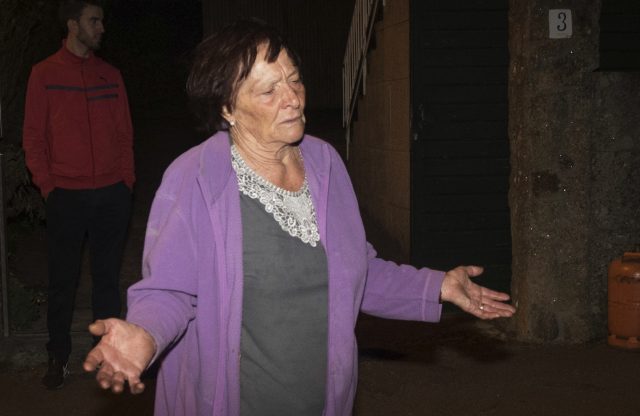
“What we are seeing here doesn’t happen accidentally. This has been induced,” Mariano Rajoy, who is from Galicia, said during a visit to a local fire department.
Officials in both countries said they expected that rain and cooler weather forecast for later on Monday would help put out the fires.
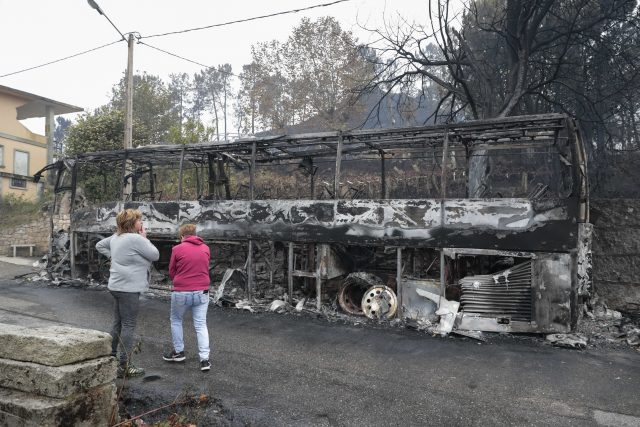


Comments: Our rules
We want our comments to be a lively and valuable part of our community - a place where readers can debate and engage with the most important local issues. The ability to comment on our stories is a privilege, not a right, however, and that privilege may be withdrawn if it is abused or misused.
Please report any comments that break our rules.
Read the rules here